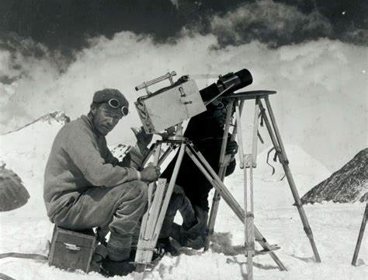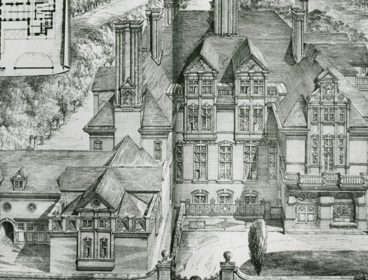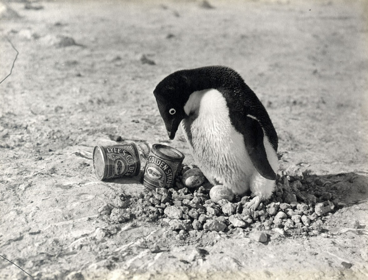These resources are intended to be used by geography higher education staff to recreate much of the content usually delivered during in-person student visits to the Society, while being delivered remotely. Structured in a modular format, units may be selected and ordered based on the requirements, interests and level of particular groups of students. These units may be combined into one extended session, for example as part of a workshop or careers event, or may be used in installments, such as throughout a module. If you use these resources and find them helpful, or have any suggestions about how they could be improved, please get in touch.
Use of this content may also be followed by a live Q&A session with a member of Society staff. To book a session, please contact rhed@rgs.org.
Unit 1 – Introducing the Royal Geographical Society (with IBG)
1A – What is geography?
Geography is a diverse and dynamic subject which gets to the heart of some of the greatest challenges and opportunities facing the world. Geography puts this understanding of social and physical processes within the context of place - recognising the great differences in cultures, political systems, economies, landscapes and environments across the world, and exploring the links between them. Understanding the causes of differences and inequalities between places and social groups underlie much of the newer developments in human geography.
Geography provides an ideal framework for relating other fields of knowledge. It is not surprising that those trained as geographers often contribute substantially to the applied management of resources and environments.
Geography is, in the broadest sense, an education for life and for living. Learning through geography – whether gained through formal learning or experientially through travel, fieldwork and expeditions – helps us all to be more socially and environmentally sensitive, better informed, and more responsible as citizens and employees.
Question to consider: When you hear the word ‘geography’, which three words come to mind?
Activity – Read the latest Global Risks Report from the World Economic Forum. For each risk, think about whether there are any spatial aspects to these issues. How might geographers play a part in addressing these and finding solutions?
1B – Virtual tour of the Royal Geographical Society (with IBG)
Step inside the Society’s home in South Kensington to discover more about its past and connections with the history of geography.
On our website, you can find out more about the history of the Society, and visiting the Society today. You might also be interested to read: Jazeel et al. 2022: Decolonising spaces of geographical knowledge production: ‘Thinking geographically’ with undergraduate geographers in the RGS-IBG at Kensington Gore. Area. Available here.
On our website, you can find out more about the history of the Society, and visiting the Society today.
1C - What does the Society do today?
The Royal Geographical Society (with IBG) is the UK’s learned society and professional body for geography. In essence, our role is to support geographers in a wide range of settings and help to advance geographical science. As students of the subject, that includes you! As you progress through your geographical studies and begin your career, the Society is here to support you.
1D – Being a Geography Ambassador
The Geography Ambassador scheme recruits, trains and supports undergraduate, postgraduate and graduate geographers from universities and businesses to act as ambassadors for geography in the classroom and beyond.
Unit 2 - Geographical learning with the Society's archives
2A – About the Society’s archives
With over two million items, our Collections provide an unparalleled resource tracing 500 years of geographical discovery and research.
2B – Working with the archives: women in expeditions
An exploration of how archival sources can be useful to geographical research. The Society’s collections give an insight into the history of geography and the Society.
2C – Hidden histories of exploration
Based on our online exhibition, this activity considers the role of indigenous intermediaries in histories of exploration. In this 30 minute workshop, students will learn about the role Indigenous people played in the history of exploration. Focussing on materials from the Society's Collections, which were also used in the 2009 exhibition Hidden histories of exploration, this workshop will investigate how colonial archives highlight certain histories while obscuring others. There are two different versions of this workshop, one for students with limited archival experience, and one for students with moderate archival experience.
Unit 3 - Geography and Employability
3A – Introduction to the Royal Geographical Society (with IBG)
As a professional body, we promote the discipline and support those who use geography in their work.
3B – The diversity and value of geography
Geographers do not follow a single career pathway; rather, there is an incredibly diverse range of options available. Geographers can be found in dozens of sectors and industries. Learning more about these, and which ones match your interests and strengths, is an important first step in planning a career.
For more detailed information and advice about careers with geography in a range of different sectors, take a look at our Use Geography webinars and resources. In each 45-minute session, a panel of geographers working within a particular sector explain how and why they pursued their chosen career, and share advice for starting in the sector. The accompanying resources include useful tips, insights and links from each webinar.
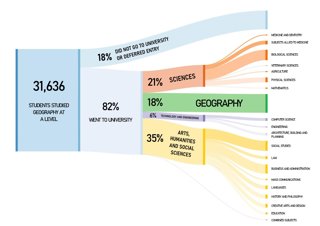
Activity: Explore our Use geography resources and webinars for the sectors which match your interests and strengths.
Question to consider: Do you know all of the skills you are developing though your geography degree?
Studying for a degree in any subject develops a range of skills and attributes that are essential in the workplace. However, in addition to these skills, geographers develop qualities and skills that are more unique. Understanding what these skills are, and how to communicate these to employers, is an important step when starting your career. Find out how being a geographer makes you stand out from the crowd.
A key element of geography that differentiates it from other subjects is an understanding of scale. This helps geographers to understand and analyse complex processes and changes over time, whether they take place at a local, national or global scale.
Question to consider: What do I know about the employers in the sector(s) I am interested in? Which elements of my university work link to the skills would need there? What examples of this could I talk about in an interview?
Activity: This understanding of processes at different scales make geographers suited to a diverse range of careers, even though you often won’t find the word ‘geography’ in the job title. Take a look at this job description for a Catastrophe Risk Analyst and highlight the skills we have discussed in relation to geography.
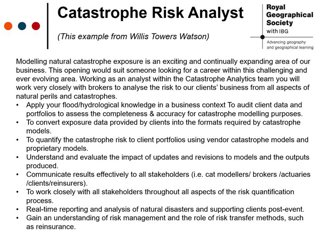
Once you understand the skills of a geographer, and how to spot them in job descriptions, you need to be able to communicate your skills effectively in an interview situation. Recognising your skills and being ready to explain examples of how you have used them can be helpful.
3C – How the Society can support you through your studies
Option 1 – may be most suitable for Year 1 and 2 students.
A brief introduction to the Society, including information about how geography students can get involved.
Option 2 – may be most suitable for final year students.
Information about the benefits of getting involved in a professional body early in your career, including information about how geography students can get involved with the Society and access career guidance and resources.


